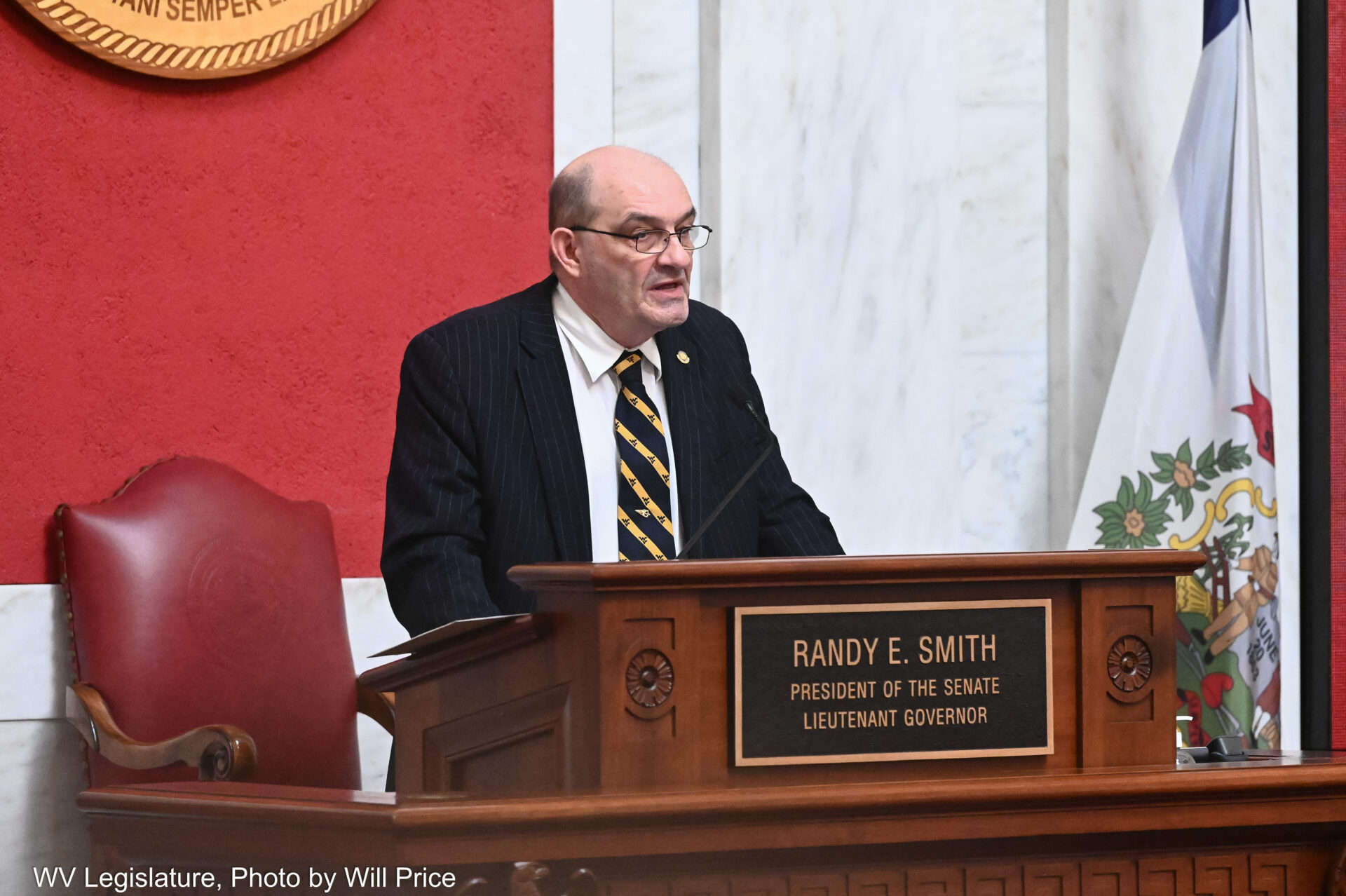The West Virginia Senate amended and re-passed a rules bundle bill during their Thursday floor session after Gov. Patrick Morrisey vetoed it on April 1.
Senate Bill 369 was vetoed and returned to the Legislature by Morrisey on Tuesday for what the governor’s office called, in a letter to Senate President Randy Smith, “its imprecise and unwieldy regulation of political action committees [that] will likely cause confusion for those attempting to have their voices heard in our political process,”
The Senate took the bill back up during its Thursday morning floor session.
West Virginia’s Secretary of State, Kris Warner, released a statement minutes before the Senate’s floor session, expressing frustration over Morrisey’s veto and asking legislators to override it.
Warner said in the release that the rules bundle had been published for public review and comment for at least eight months, and he was shocked when Morrisey vetoed the bill.
“Not only is it questionable whether a governor can ‘veto’ a Legislative Rule, this was the first time anyone raised concerns with this rule’s language in the last eight months,” Warner wrote.
In addition to state agency regulations, Warner said the rules bundle in Senate Bill 369 updates campaign finance rules that aim to increase transparency in political campaign finances, and alleged that to be the real reason for the governor’s veto.
“Who, I wonder, is ‘attempting to have their voices heard in our political process’ that cannot under our existing or proposed rules? Federal and state laws provide broad protections and rights for citizens to voice their opinions,” Warner wrote. “The government’s interest in regulating that speech has been extensively litigated.”
Warner said in his statement that the public deserved the time to review the new version of the bundle, which he, senior counsel, and staff of the House and Senate, the governor’s attorney, and his staff revised and “had their days hijacked because of this easily avoidable situation.”
“I’m confident that the revised language is palatable—it merely provides guidance for existing law,” Warner wrote. “But what if it were something else such as a topic that impacts the daily lives of citizens, the public health, our schools? Had we been approached, we would have explained the well-researched updates and offered to clarify any ambiguous provisions. But that’s not what happened.”
Sen. Patrick Martin, R-Lewis and Senate Majority Leader, made the motion for the body to reconsider the bill during Thursday’s floor session.
“I move that, in accordance with section 14, Article Seven of the Constitution the state of West Virginia, that the Senate proceed to reconsider enrolled committee substitute for Senate Bill 369 and heretofore disapproved and returned to His Excellency, the governor, with his objections,” Martin said.
Senators amended the bill without discussion to provide clarity for candidates who form and operate separate political action committees under existing law.
Martin explained the amendment on the floor.
“The state election commission, by the Secretary of State, revised the language in Section 14 of the rule to provide clarity and guidance as requested in the public comment as follows,” Martin said. “To provide clarity for candidates who form and operate separate political action committees under existing law, which must be separate from candidates’ committee funding and activities, two reinforcing existing law regarding coordinated expenses and prohibited use of funds for personal use, I urge adoption.”
The bill passed unanimously, as amended.
The bill was made effective upon passage and is designated as completed legislation on the legislature’s website.
Warner closed his statement by expressing his frustrations, but acknowledging and thanking the staff who made the revisions possible under a tight deadline.
“So while we were able to get the rule back on track, I’m frustrated with how we got here,” he said. “I’m frustrated with how many legislators, staff, and attorneys had their days hijacked because of this easily avoidable situation. Election-related regulations are directly within my jurisdiction according to the State Constitution and West Virginia Code as the State’s Chief Election Officer. Campaign finance regulations fall to the State Election Commission, of which I am a member by law. In the future, I’m hopeful that concerns with election regulations are raised before the timeclock runs out, and so the public has ample opportunity to participate.”
Morrisey’s office did not respond to WVPB’s request for comment. But, on Thursday afternoon, Morrisey responded to two journalists’ X posts discussing Warner’s statement from his campaign and personal account, claiming his office “helped them fix the issues and clean things up. We do need to get things right.”
The original version of Senate Bill 369 also had two technical errors.
The first technical error was in the proposed changes to the licensure and regulation of pharmacies.
Lawmakers passed and sent Senate Bill 291, allowing the Board of Pharmacies to provide registration every two years, instead of annually, to the governor for his signature on March 18. Morrisey signed the bill into law on March 24.
Language included in the original version of Senate Bill 369, which was passed by lawmakers and sent to the governor for his signature on March 25, would have required the Board of Pharmacies to provide annual registration and annual license fees, conflicting with Senate Bill 291.
The second technical error was the absence of a section name on a proposal for the Board of Respiratory Care that, according to Morrisey’s office, would have made it inconsistent with procedural formatting standards.
